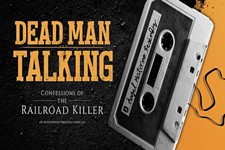Arnold Prieto Scheduled to Be First to Die in 2015
By Chase Hoffberger, Fri., Jan. 16, 2015
On Sunday afternoon, Sept. 12, 1993, Maria Luisa Rodriguez visited the San Antonio home of her parents-in-law Virginia and Rodolfo Rodriguez, only to discover they'd both been stabbed to death, along with the longtime nanny to the Rodriguez children, 90-year-old Paula Moran, who lived with the couple.
For months, the police had no leads. But in March 1994, after receiving a series of anonymous tips, two San Antonio Police Department detectives traveled four-and-a-half hours up I-35 to the Dallas suburb of Carrollton, where they met with two local detectives, and took the great-nephew of the murdered couple, 16-year-old Jessie Hernandez, in for questioning, and shortly thereafter arrested his brother Guadalupe Hernandez and their mutual friend Arnold Prieto. After four hours of interrogations, Prieto, then 20, submitted a lengthy statement.
In it, he provided background information about his relationship with the Hernandez brothers. Shortly after meeting Prieto in May 1993, the two introduced him to cocaine. By that August, Prieto had lost his job, and the three were meeting each night to snort cocaine and watch movies. "It was starting to get out of hand," he wrote. He fell into financial trouble, losing track of payments on his rent, utilities, and car loan. Prieto would complain about his financial situation, and the two brothers would counter by talking about their rich uncle in San Antonio.
Rodolfo Rodriguez, 72, ran a check-cashing business with his wife, 62, out of their home in San Antonio. The brothers would talk about a closet in the house that was filled with money. One day, after doing more cocaine, Guadalupe suggested that the three make a trip to San Antonio. They'd rob the Hernandez's relatives and head back to Carrollton, no problem.
Prieto didn't remember what time they got to the couple's house, only that "it was very dark." They walked up to the house; Virginia let them in. She offered them eggs, tortillas, and orange juice. "In my mind, I thought nothing's going to happen and we will end up just staying the night," he wrote in his statement. He went into a bedroom with Jessie and Rodolfo; moments later, he heard Virginia scream. Prieto looked into the kitchen, he wrote, and saw Guadalupe stabbing his aunt repeatedly with a screwdriver. Rodolfo got up, but Prieto pushed him back into the bed. Jessie handed Prieto a smaller screwdriver, which Prieto used to stab Rodolfo.
The three made their way through the house, grabbing jewelry and whatever cash they could find. At some point, Moran emerged from her room, and Jessie stabbed her with a knife. Reports say Jessie stabbed Moran eight different times. Rodolfo was stabbed 17 times, and Virginia 31.
Prieto was convicted in June 1995 and sentenced to death for the three murders. Only 16 at the time of killings, Jessie was spared the death penalty and instead sentenced to life in prison. Charges against Guadalupe were dropped for lack of sufficient evidence.
Prieto never appealed his verdict, but he did take issue with the punishment – and blamed his attorneys for the sentence. Specifically, he argued in a writ of habeas corpus filed May 8, 2002, his trial attorneys Michael Bernard and Julie Pollock failed to properly use three pieces of evidence during the punishment phase of the trial. First, they neglected to present his school records – which were not allowed as evidence during the guilt/innocence phase and showed that Prieto had "very poor grades" that would keep him from certain career fields. Second, they did not properly convey a doctor's expert testimony on the effect that cocaine has on someone's actions – which might have shown that Prieto "had an impairment on his executive functioning." Finally, they failed to get a copy of Prieto's statement (damning and descriptive as it was) to the jury during punishment deliberations.
The jury sent out a series of related notes during those deliberations, going so far as to ask whether or not, as the appeal notes, "drug use and possible addiction would be grounds for mitigation." That, compounded with other questions, had the jury at a temporary standstill over whether Prieto could be considered a continuing threat to society – a condition for a death sentence.
Ultimately, the appellate court concluded that Pollock had attempted to present enough mitigating evidence to obtain a life sentence in lieu of the death penalty, and that the jury's decisions were "informed decisions." It also determined that the evidence of cocaine abuse was "'double-edged' because it might establish future dangerousness rather than mitigation," and that the jury already knew Prieto was a high school dropout who was partially responsible for supporting his family. "At the start, it must be understood that the defense had no hope of proving that Mr. Prieto was not a future danger to society," the court wrote in its analysis. (No doubt, his track record and reports that he was repeatedly insubordinate during the year he spent in jail after his arrest played a part in that determination.) "Accordingly," the ruling continued, "the trial team should have pursued all venues with respect to the mitigation issue."
On Sept. 15, 2008, Prieto was denied a Certificate of Appealability by the U.S. 5th Circuit Court of Appeals. Eight months later, in 2009, the Supreme Court refused to review his case. Since then, Prieto has made no further appeal. Now 41, he'll be the first person to be executed under Governor Greg Abbott, the first Texas inmate executed this year, and the 521st since the reinstatement of the state's death penalty in 1976.
Got something to say on the subject? Send a letter to the editor.









